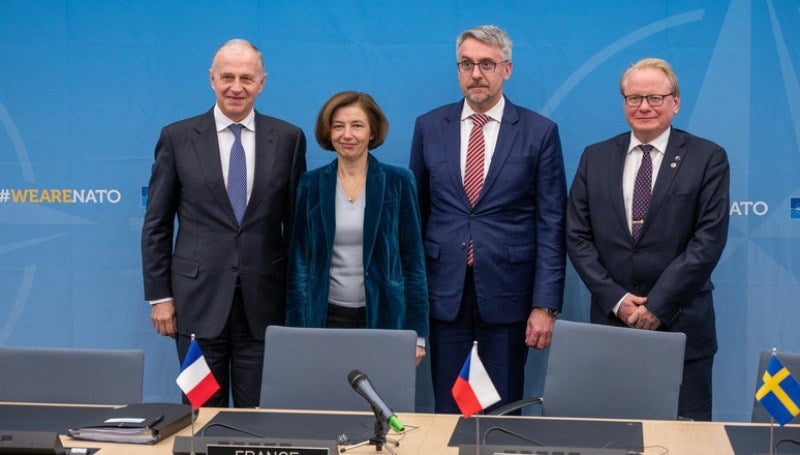
Nato has welcomed two allied countries as participants of ongoing multinational munition projects in the land domain.
The project is known as Land Battle Decisive Munitions (LBDM) initiative and the new entrants are the Czech Republic and Sweden.
The new addition takes the total number of participants and partner nations to 23. The LBDM initiative establishes a multinational framework for acquiring and managing munitions.
Under LBDM, the acquisition costs of weaponry can be reduced by the participating nations. It allows the countries to come together and fulfil their purchase requirements.
Additionally, the ability and flexibility to share munition stocks enhance with minimum legal and technical obstacles. This process efficiently boosts the procurement strategy.
The amended memorandum of understanding (MOU) of the initiative was also signed around the same time as Nato defence ministers’ meeting in Brussels.
Nato deputy secretary-general Mircea Geoana said: “This project, by taking full advantage of economies of scale, is enabling us to get the most of every penny, cent or öre from our rising defence budgets.”
Launched in June 2017, the initiative includes self-propelled and non-self-propelled munitions.
Initially, the LBDM project was launched with 11 allies and partner nation Finland at Nato defence ministerial meeting via a letter of intent (LOI).
In June 2018, an MOU was signed by 16 allies and three partners at the Nato Summit in Brussels.
The first delivery of antitank weapons under the LBDM framework was handed over to Denmark, France, and the Netherlands in January last year.
The other countries participating in the initiative are Austria, Belgium, Croatia, Denmark, Estonia, Germany, Finland, France, Italy, Latvia, Lithuania, Montenegro, the Netherlands, North Macedonia, Norway, Poland, Portugal, Slovakia, Slovenia, Spain, the UK.


